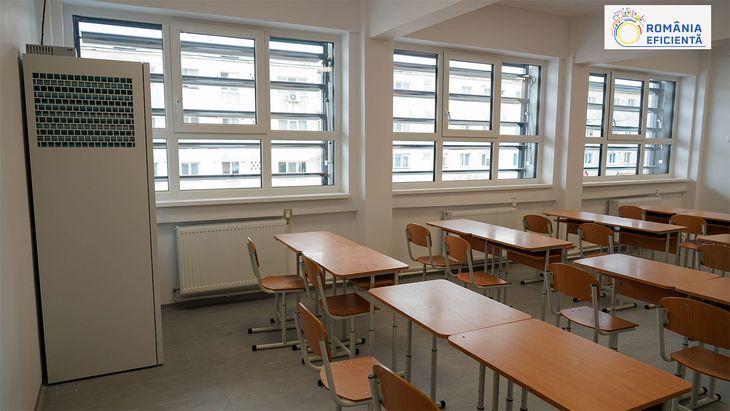OMV Petrom and Energy Policy Group (EPG) recently announced the completion of the renovation and rehabilitation works of the Liliești Secondary School in Băicoi, carried out as part of the Efficient Romania program. With a total investment of 1.6 million euros, the school became the second educational unit in the country modernized to the near-zero energy consumption standard (nZEB). The first unit renovated through Efficient Romania was the “Elie Radu” Energetic Technological High School in Ploiești, in 2022.
As there are about 5,500 schools and high schools in Romania, the amount needed to modernize all the buildings in the primary, secondary and high school education network to nZEB standards would mean a cost of almost 9 billion euros, about 10% of Romania’s annual budget. A significant financial impact, which could only be managed through a well-thought-out multi-year national programmed. Strictly based on the financial and coordination capacities of local public administrations, investments of this magnitude will probably remain quite exceptional.
The impact of a project like the one in Băicoi lies precisely in its potential of setting the right benchmarks. The 10 modernization works for energy efficiency carried out at the Liliești Secondary School can be organized and sorted according to their impact on the reduction of the energy footprint, on the one hand, and to their individual cost, on the other. An analysis can thus be carried out to identify those interventions that are most effective for the allocated financial unit.
Installing a solar panel system is relatively inexpensive and has an immediate impact in reducing your monthly electricity bills. On the other hand, the installation of aluminum sunshades, electrically adjustable, is one of the expensive interventions, which can be carried out in a later step where and if possible. The thermal insulation of the basement, the roof and the restoration of the waterproofing are mandatory works to control the subsequent consumption of the building. They are expensive, but they cannot be avoided. Air filtration equipment with heat recovery is rather expensive, when their impact on energy consumption is taken into consideration, when compared to upgrading indoor heating systems, for example. Heat pump heating systems require an even more complex analysis.
All these are examples only, with no ambition to pose into actual proposals. We insist on them only to make an idea clear. The ambition (as much as it exists) to have schools upgraded to near-zero energy consumption (nZEB) standards is exaggerated and untenable. The role of projects such as those carried out by OMV Petrom and Energy Policy Group (EPG), together with partners such as Signify or Siemens Energy, is to provide the tools for analyzes of the type described above to be carried out by experts and undertaken by the authorities in town halls, county councils and government.
Romania Eficientă promises to continue the investments with two other educational units, from the localities of Ovidiu (Constanța county) and Drobeta-Turnu Severin (Mehedinți county). They will be rehabilitated and modernized to be brought up to nZEB requirements, through a new stage of the Efficient Romania program, worth 4 million euros, supported by OMV Petrom.

